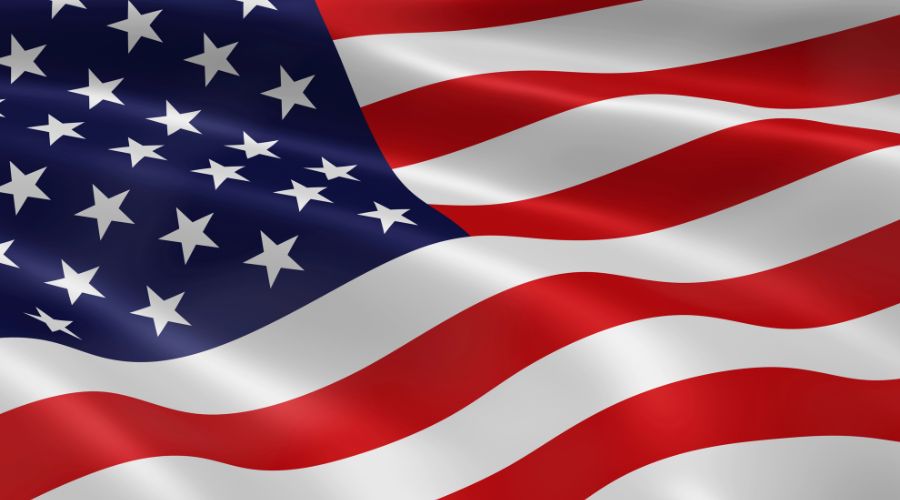Farming sector reacts to US import tariff
3rd April 2025
Trump has announced at least a 10% tariff on all imports to the US, prompting reactions from UK farming groups.

Farming groups have reacted to the news that the US will impose at least a 10% import tariff from 5th April.
Several countries will be subject to country-specific tariffs that will take effect on 9th April 2025.
This includes a 20% tariff for the EU and 54% for China (including previous tariffs announced).
The 25% on Canada and Mexico that were announced last month will be unchanged.
The AHDB has conducted some initial analysis following the news.
“It goes against the WTO”
Jess Corsair, AHDB senior economist, said the announcements go against the World Trade Organisation (WTO) and will increase barriers to trade globally.
“The WTO also has the ‘most-favoured nation’ (MFN) principle which means that countries cannot discriminate between their trading partners, so all members are treated equally when it comes to trade.
“This principle has been ignored as the US has implemented different tariffs on different countries.”
The UK’s main exports to the US include machinery, cars, pharmaceuticals, fishing and electronics, she continued. The announcements also included a 25% tariff on foreign made cars.
“There are potential global economic implications from these announcements, as we have seen on global stock markets this morning.
“There could also be impacts on inflation as tariffs make imported goods more expensive, and as well as slowing down global trade volumes and subsequently slowing global economic growth.”
READ MORE: Nigel Farage supports idea of selling US chlorine-washed chicken in UK
READ MORE: US trade deal rumours prompt warning from farming unions
Who are the main exporters to the US?
The main agricultural exporters to the US are Canada, Mexico, the EU, Australia and New Zealand. The US imported £7bn of beef, £1.2bn of pork, £1.14bn sheep meat and £1.4bn of cheese (2022–24 three-year average).
The main exporters of beef to the US (three-year average 2022-24) include:
- Canada – £1.07 billion
- Mexico – £1.41 billion
- Australia – £1.48 billion
- New Zealand – £784 million.
The main exporters of pork to the US include:
- Canada – £754 million
- EU – £241 million
- Mexico – £119 million.
The main exporters of cheese to the US include:
- EU – £1.02 billion
- UK – £68 million
- Canada – £57 million.
Jess added: “This will be a major disruptor of global trade, but the impacts will be difficult to predict until we know how the various trading partners will react.
“As this starts to become clear we will be able to examine the impacts on the UK and global markets.
“It is likely that there will be changes to trade flows and we will examine the impact how trade will be displaced especially with key agricultural exporters such as Canada, Mexico, Australia and New Zealand.”
The UK exports to the US (three-year average 2022-24) include:
- £2.9 million of fresh and frozen beef
- £23 million of pork
- £68 million of cheese.
Clarification needed
Jess said: “Currently the UK has access to the US rest of the world quota for beef exports.
“This quota was filled by 17th January in 2025, and then any beef exports are subject to tariffs of 26.4%.
“It is unclear whether the new 10% tariffs will be additional to the current 26.4% tariff.
“Additionally, it is unclear whether the 10% tariff will be additional to those countries who already have Free Trade Agreements in place.”
Further clarification is needed regarding the how these tariffs will be implemented alongside current FTAs, quotas and agreements, she concluded.
AHDB will monitor this and do further in-depth analysis on the implication of the tariffs on global trade and the economy.
British consumers say no to chlorinated chicken
Meanwhile, Country Land and Business Association (CLA) vice president Joe Evans commented on the news:
“Donald Trump might demand we eat chlorinated chicken and beef reared using growth hormones – but British consumers say no.
“British farmers, who must comply with some of the highest animal welfare and environmental regulations in the world, should not be forced to compete with American farmers who produce cheap food to much lower standards.
“British exports will be affected by these tariffs, which could harm producers of world class wine, spirits, cheeses and other goods. The best thing the public can do to support these farmers and producers is to buy British.
“Ministers would do well to remember that it is the job of British farmers to feed the nation, whilst at the same time being exemplars of sustainable farming practices. We can only do that with a strong and healthy farming sector.
“Unfortunately, recent government policies – such as changes to inheritance tax – have left the industry considerably weaker.
“The prime minister and the chancellor should reverse these disastrous policies immediately, adding a new line of defence against America’s aggressive trade demands.”
Read more political news.
